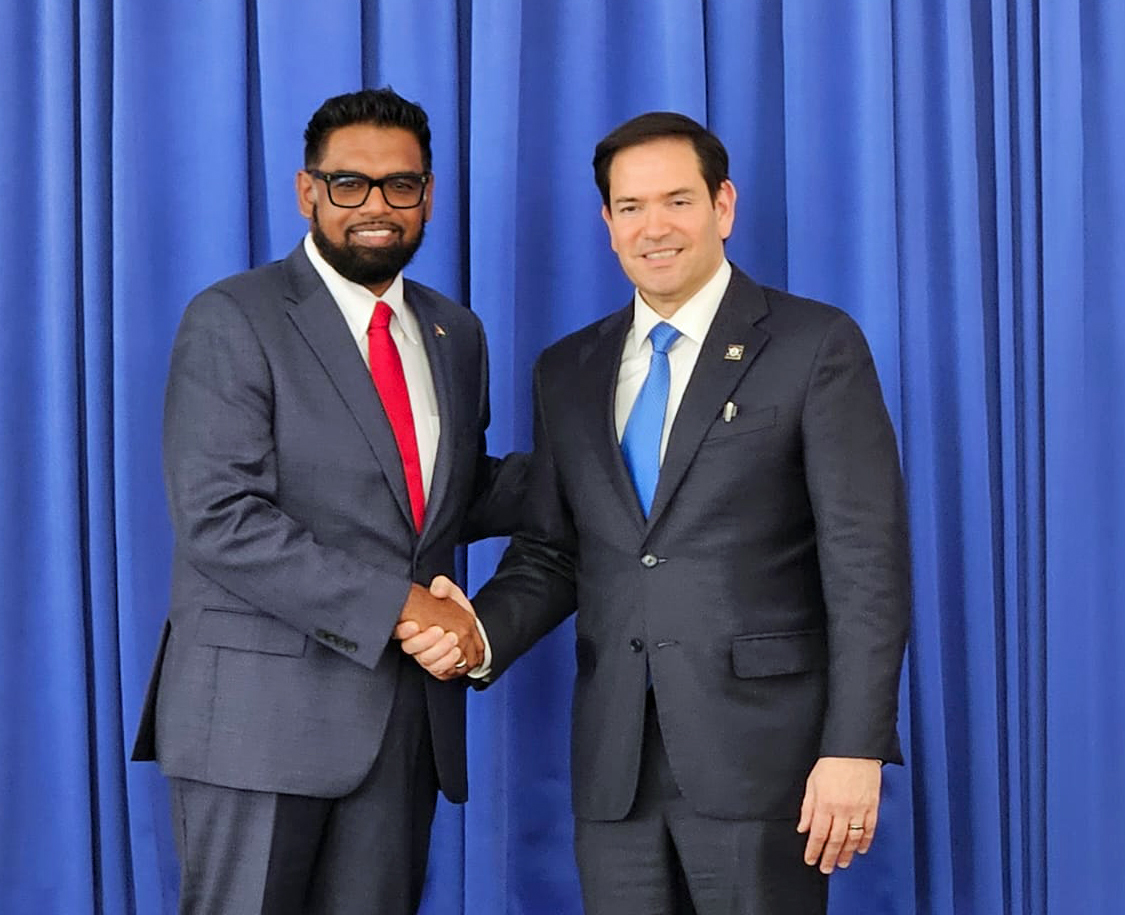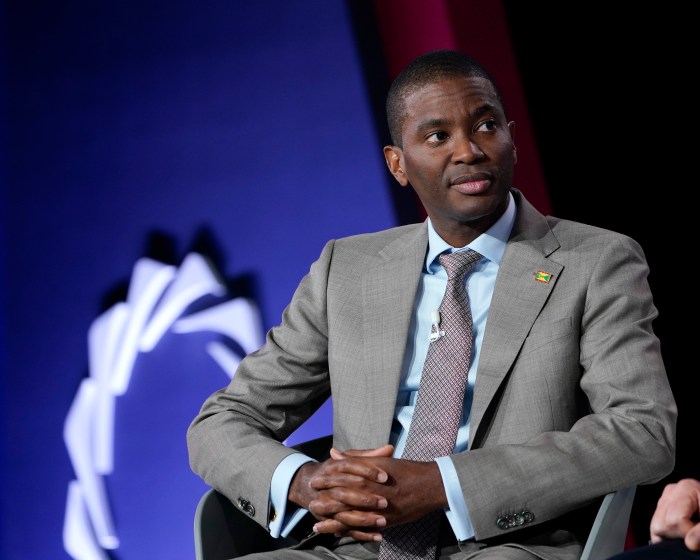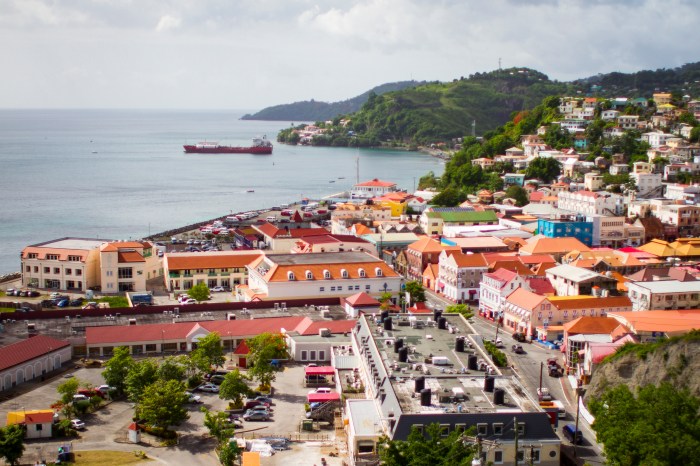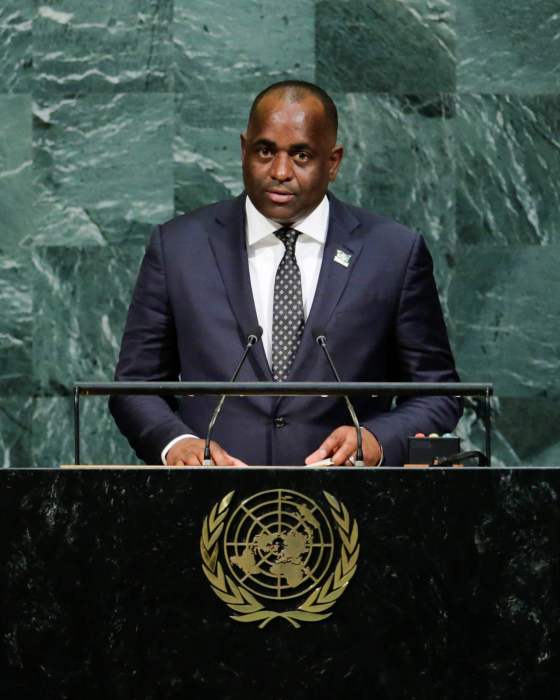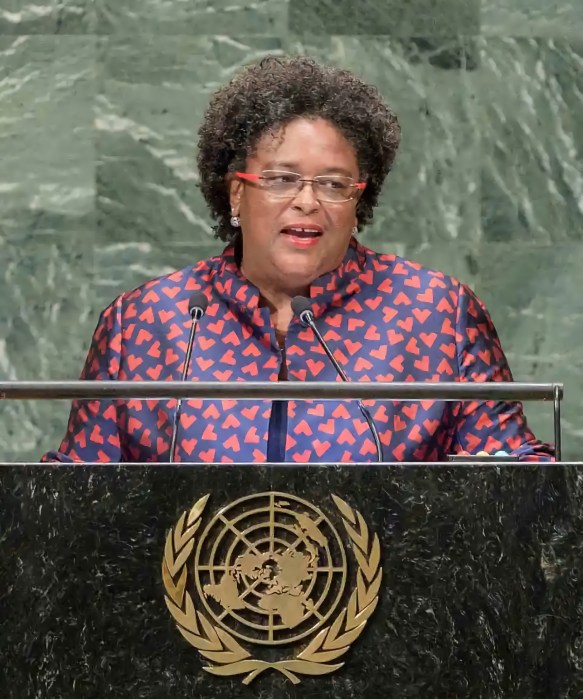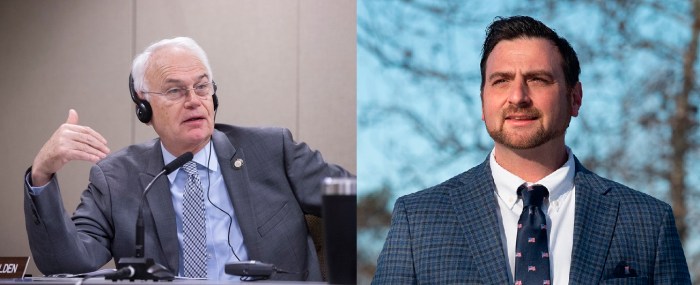Caribbean governments reacted cautiously Thursday to the new system of tariffs imposed on countries worldwide by the Trump administration in the US, with most saying they will either wait and see or are willing to engage American authorities in the coming weeks.
For most countries in the region, the tariff rate for exports hovered around 10 %, but Guyana, which exports crude oil, rums, gold, timber, fish, shrimp, and agricultural products to the US, was blitzed with a 38 % rate that triggered an immediate reaction from a baffled Irfaan Ali administration.
“The government of Guyana has taken note of the reciprocal tariffs that have been announced by the United States and is engaging its relevant partners. Our government is closely engaged with our US partners to better understand the issue and have it addressed as appropriate,” an official statement said.
The release of details from the White House triggered a social media storm of reactions, with many contributors wondering why local authorities were paying Continental Strategy LLC, a lobbying firm, $50,000 monthly plus expenses to lobby Congress and the White House on Guyana’s behalf. Many deemed the money to the lobbying firm as a waste of resources and argued that attempts by Guyana to forge closer with the US in recent years might have stumbled.
Others, like Timothy Tucker, a former president of the Georgetown Chamber of Commerce, suggested that Third World countries are at an advantage over developing states, some of whom subsidize many important sectors.
“Free and fair trade are only good when we are on level ground; it can’t be when one country is considered First World and another Third World. We simply cannot compete on the same level, no matter what we do. That’s the plain and simple truth.”
Others dubbed the recent visit by Secretary of State Marco Rubio and his pledge to help Guyana in many ways as a waste of time. It has had little effect on the country as it has been slapped with the highest tariff rate in CARICOM. The umbrella Private Sector Commission (PSC) also reacted in a release, noting that the “United States remains Guyana’s largest trading partner, making it imperative for us to carefully assess the implications of this recent tariff,” Komal Singh, its chairman, said. “A comprehensive review is necessary to identify common ground and ensure that bilateral trade continues to thrive as our economy expands.”

Trinidad, which exports tons of ammonia, ethanol, natural gas, petroleum gas, and rums to the US, also reacted cautiously. NePrime Minister Stuart Young said at a public meeting on Wednesday night that Trinidad is “prepared to sit across the table and negotiate regardless of who is on the other side.”
At an earlier meeting with the business community, he said, “I will argue and advocate. Over the last 10 years, despite the volatility of the rule, we have had even more volatile times with decisions being made far out of Trinidad and Tobago that have direct effects on us. You see the tariff regimes that are literally arising by the day, but you’ve also seen the ability of credibility and a good reputation,” said Young, moments before Trump announced that T&T would be slapped with a 10 % tariff.
Meanwhile, Jamaica’s government said it was checking the details of the announcement, noting, “We are obtaining the requisite technical documentation to ensure accuracy of details and appropriate analysis. Please be assured that we appreciate the public’s need for further information and clarity and will update the business community and the wider public accordingly. The government of Jamaica has taken note of the new tariff regime announced yesterday by the President of the United States of America,” it said in a statement.
In Barbados, Junior Finance Minister Ryan Straughn said the region must review its import tariff system. “We have put these tariffs in place as a measure to protect domestic and regional businesses as we try to ensure that issues relating to food security as well as jobs. Therefore to the extent that CARICOM, as a body, as a group in relation to these matters, we have a common external tariff in place of which the US would be one of those countries that apply as one of those countries out of CARICOM and therefore I think from a regional perspective we all will have to ensure that we focus on how do we get support for our producers in being able to access the full global supply chain and be able to start to do more trade with each other,” he said on state-run CBC television.


